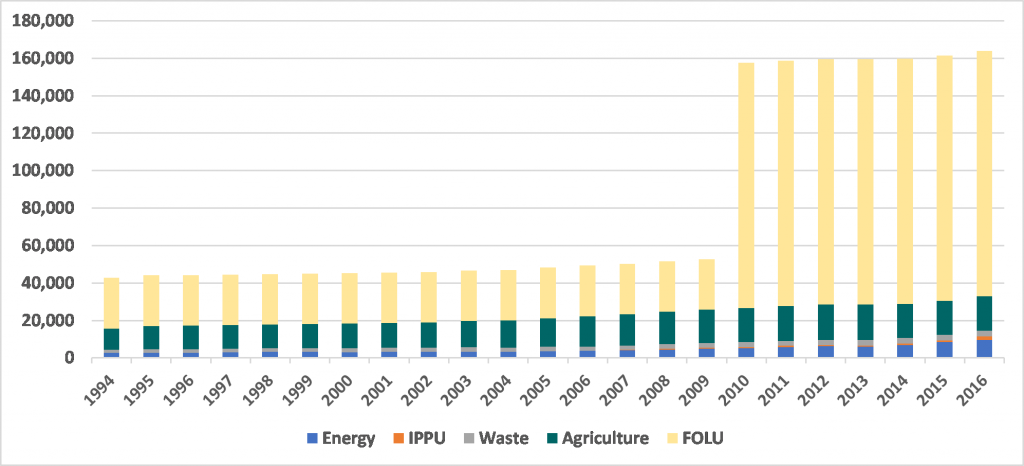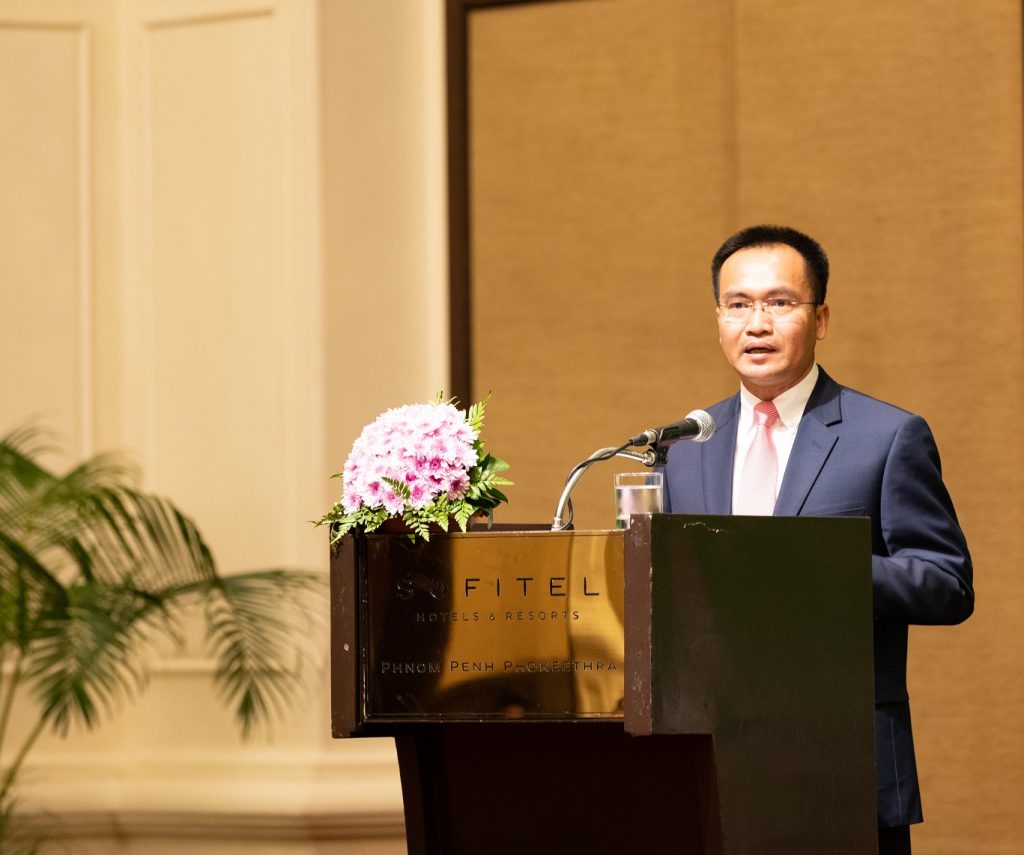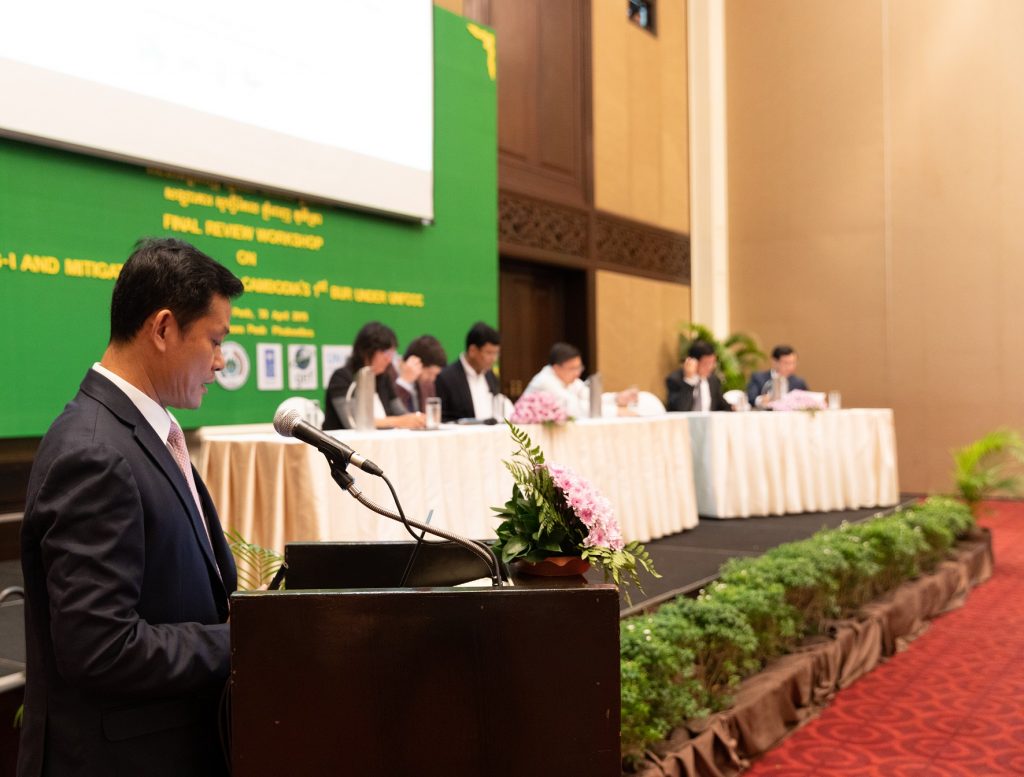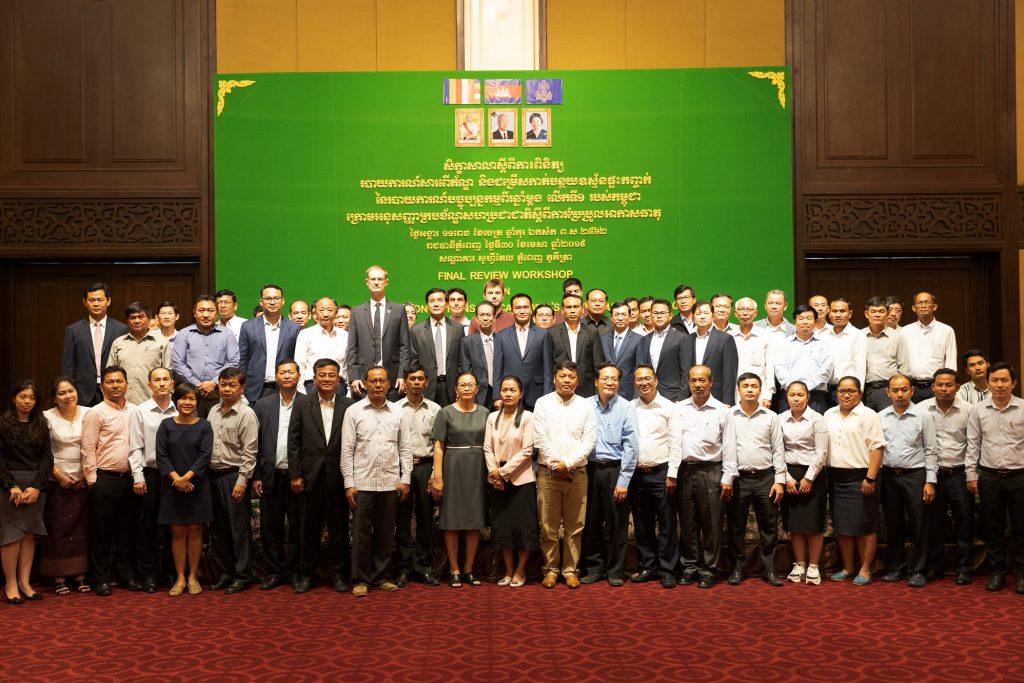Cambodia is preparing its third Greenhouse Gases Inventory (GHG-I) report to provide updates on emission source and sink related the four key sectors: Energy, Industrial Process and Product Use (IPPU), Agriculture, Forest and other land uses (AFOLU), and Waste. The GHG-I provides the trend of emissions, which is essential for a country party to UNFCCC develop necessary measures to mitigate causes of climate change and have better adaptation plans in place.
After one-year of effort, the final draft of GHG-I report is available for national inputs. On 30 April 2019 in Phnom Penh, 95 participants attended the final review workshop, which organized by the Ministry of Environment.
Primary GHG estimate 1994-2016 (Gg of CO2-eq)

“Ministry of Environment (MoE), in cooperation with relevant ministries, development partners and stakeholders are addressing climate change issues at both national and subnational level’, says H.E Sao Sopheap, Secretary of State.
“MoE is encouraging stakeholders to develop and implement green development projects, Payment for Environmental Services, and REDD+”, adds H.E Sao Sopheap.
Reducing emission from forest sector through REDD+ is the most cost-effective measure that could provide multiple benefits to sustainable development and raise communities’ livelihood, that’s why REDD+ Programme has consequently been recognized and strongly supported by the Royal Government of Cambodia.
UNDP, as a development partner to Cambodia, is pleased to be a partner of the government in achieving the Sustainable Development Goals and supporting the REDD+ programme.
“UNDP supports the Government plans to foster the growth of a low-carbon economy with multiple social and environmental benefits to the Cambodian people,” says by Nick Beresford, Resident Representative of UNDP Cambodia in the opening session of the workshop.
The GHG-I report is a key element of Cambodia’s first Biennial Updated Report (BUR) and the 3rd National Communication to be submitted to UNFCCC at the later stage. It is an important signal to international community about the country’s commitment to climate change agenda. Also, BUR is also one of the critical entry requirements for REDD+ countries to access financial support under the REDD+ results-based payments scheme.
After this national workshop, feedback will be carefully reviewed and addressed. The final report will then be officially adopted and used.




